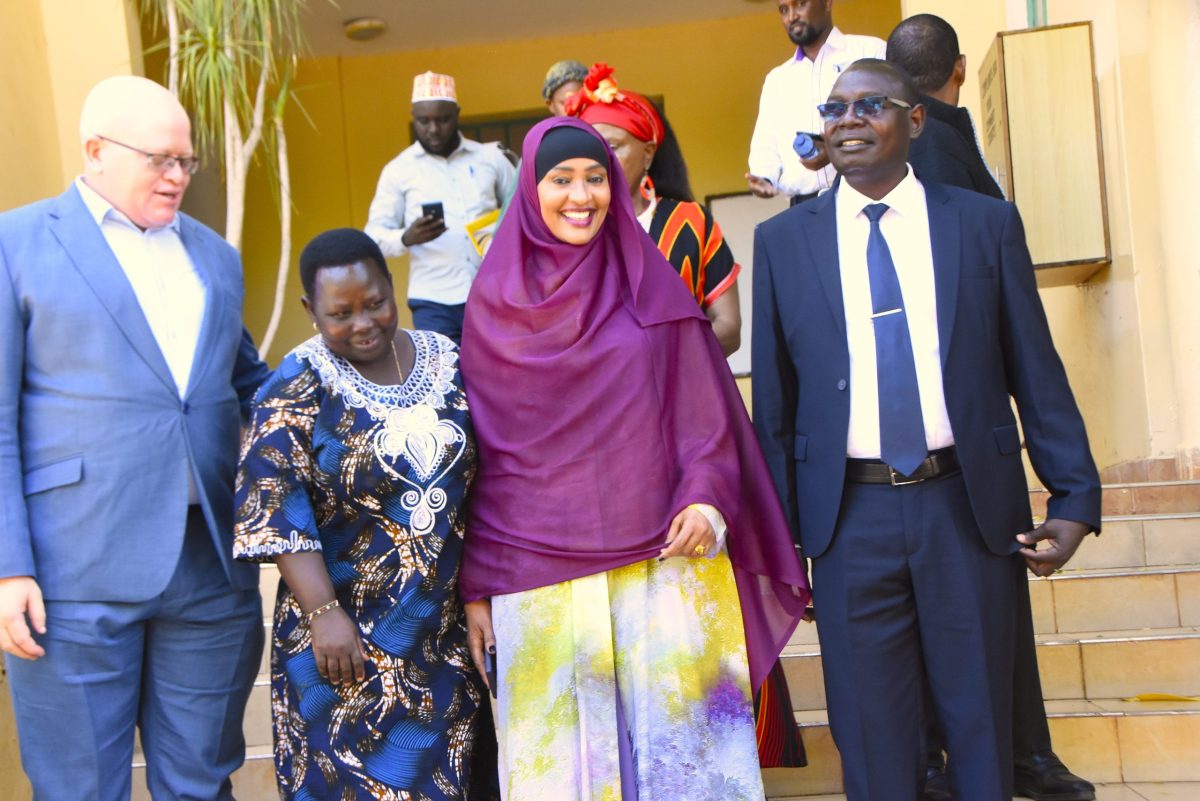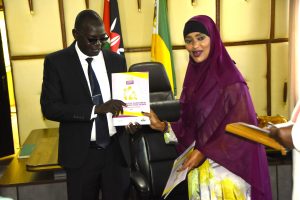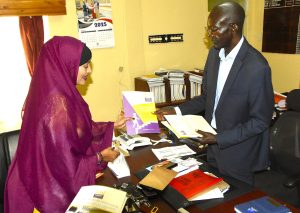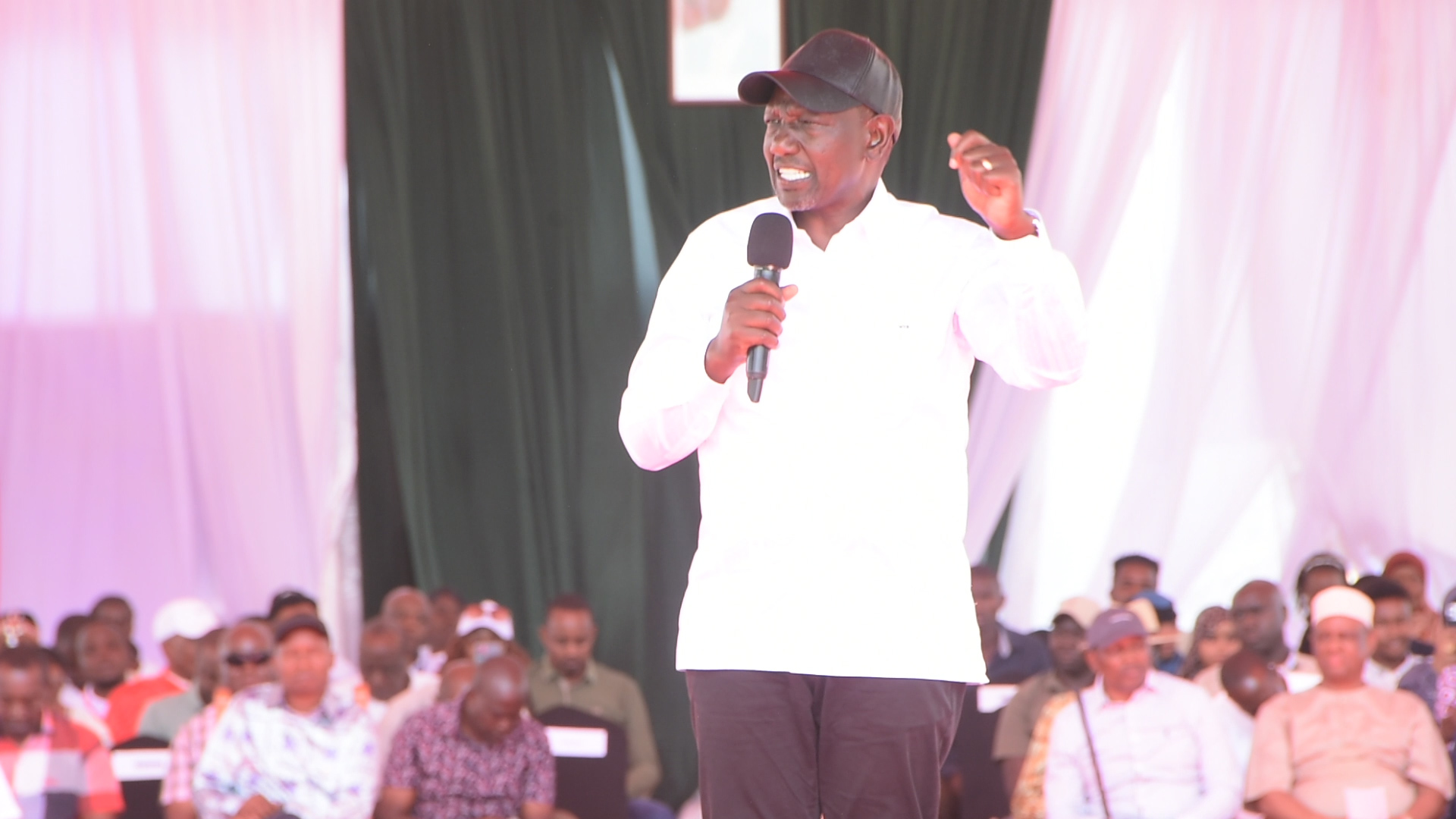NGEC Launches Inclusivity Drive in Isiolo to Support Vulnerable Groups

The National Gender and Equality Commission (NGEC), chaired by Rehema Jaldesa, has begun a three-day engagement in Isiolo County aimed at promoting inclusivity for special interest groups in government programs as well as identifying the gaps at the community level, in the fight against Gender Based Violence (GBV).
The visit brings together state and non-state actors to discuss key issues affecting children, persons with disabilities, youth, the elderly, and victims of gender-based violence.
Commissioners from NGEC will conduct scheduled stakeholder meetings in Isiolo and Kina, including visits to local institutions such as Isiolo Prison.
Among the goals of the visit is the streamlining of access to justice and the establishment of clear referral pathways for victims of gender-based violence.

These sessions have also drawn participation from key institutions like the Kadhi’s office and the National Police Service.
Earlier in the day, the NGEC team paid courtesy calls to County Commissioner Geoffrey Omonding and Isiolo Deputy Governor James Lowasa before holding a stakeholders’ forum at El-Boran Hotel.
Rehema praised the collaboration between the commission and the Isiolo County government, citing the implementation of gender, social protection, and disability policies as key achievements of the partnership.

She emphasized the importance of ongoing legislative efforts to protect the rights of marginalized and minority groups, encouraging Isiolo leadership to actively participate in the process.
Rehema noted that Isiolo’s diverse cultural landscape, home to several pastoralist communities, would benefit from the commission’s initiatives aimed at reducing harmful traditional practices and promoting gender equality.
Touching on the recent femicide case involving a seventeen-year-old girl in Wajir, Rehema confirmed that the commission is actively involved in the follow-up. A forensic team, including the chief and a private pathologist, has been deployed to Wajir to conduct a postmortem following the planned exhumation of the victim’s body.
Rehema stressed that defilement cases are criminal in nature and should not be resolved through alternative justice mechanisms.
She also addressed the broader issue of femicide, rejecting the narrative that it is solely driven by material motives. According to her, factors such as wounded egos and resistance to women’s growing empowerment contribute significantly to these violent acts.
Additionally, Rehema revealed that the commission is auditing employment data in collaboration with the Office of the President to ensure compliance with gender equity laws across all sectors.
Deputy County Secretary Mohamed Boru highlighted the need for both county and national governments to allocate funds to sustain programs previously supported by USAID. These programs, he said, play a crucial role in supporting local communities.
Isiolo Deputy Governor James Lowasa added that alongside gender and child protection policies, the county has initiated women-focused business startups and grazing management efforts to reduce insecurity.
He emphasized that reduced conflict would have a positive impact on vulnerable groups, especially women and children who often bear the brunt of local disputes.
The NGEC’s presence in Isiolo signals a renewed push for inclusive governance and social justice for all, especially those often left behind in national development conversations.



